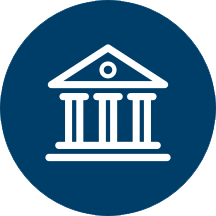
BSA AND MEMBER COVID-19 RESPONSE AND RESOURCES

300+ BSA member resources for transitioning to remote work

Free software training programs from BSA members to learn tech skills from home
Communities around the world are taking essential steps to help reduce the spread of COVID-19. BSA members have risen to this global challenge in a number of ways, including: providing free access to their services; helping track and disseminate information on the spread of the virus; supporting medical research efforts; donating to emergency funds; and partnering with governments to keep people safe.
Below, you’ll find details about the products and services our member companies at the global and regional levels are providing, as well as information about BSA’s efforts to help policymakers navigate this new landscape. The information below will be updated on an ongoing basis.
BSA Response in the News
The Washington Post covers the release of BSA's Response & Recovery Agenda, writing: "BSA | The Software Alliance released a blueprint for how governments can help support remote workers during and after the pandemic."
Computer Weekly covers the release of BSA's Response & Recovery Agenda, writing: "The move to a home working environment for many has underscored the importance of software, to collaborate, be productive and to keep sales coming in."
Global Translations checked in with a half-dozen CEOs about their future plans for business travel. Victoria Espinel, BSA's President and CEO, said teleworking has helped her feel “more connected” to her teams. “Bottom line for 2021: less travel but higher engagement,” Espinel said.
BSA's Joseph Whitlock speaks with Inside US Trade on how the COVID-19 pandemic has accelerated a digitization trend – and firmly established digital trade as a defining issue. Supply chains are important in digital trade, Whitlock said. Information and communication technology supply chains must be operational so that countries can source the equipment needed for remote work, online shopping and securing digital infrastructure.
BSA's Kate Goodloe spoke with Bloomberg Law on how technology companies are policing themselves to protect consumer data in the absence of a comprehensive US federal privacy law. BSA | The Software Alliance supports the creation of a federal privacy regime, but “companies should respect the privacy and security of data they hold, even without a national privacy law,” she said.
Aaron Cooper, vice president of global policy at BSA | The Software Alliance, spoke with Protocol about a new push from Senate Republicans for coronavirus-related data privacy provisions in the next economic stimulus package. He noted the legislation could help ensure all companies "play by the same rules and make sure consumers across the country have the same expectations." The bill, Cooper said, "stands for the proposition that we shouldn't be sacrificing privacy or security while we're responding to the COVID crisis."
Kate Goodloe, director of policy at BSA | The Software Alliance, spoke with Law360 on how the COVID-19 response emphasizes the need for strong federal privacy legislation. "The pandemic really accelerates a lot of the ongoing discussions on privacy legislation because it highlights a concrete example of not only the need to use data in important ways, but also the importance of getting it right when it comes to the type of privacy and security safeguards that need to be placed on different uses of data," she said.
BSA signed a letter to House leadership asking Congress to boost cybersecurity funding for state and local governments in the next coronavirus bill. The letter notes that state and local governments were already facing serious cybersecurity woes, and increased remote working during the pandemic has made them even more vulnerable.
Alongside a coalition of business groups focused on cybersecurity, BSA asked Congress to provide dedicated funding to help state and local governments bolster their defenses against cyber attacks during the global COVID-19 pandemic.
BSA joined a coalition of major tech groups to urge Congress to send funds to state and local governments to defend against cyberattacks as part of the next coronavirus stimulus bill. In the letter, BSA and other coalition members wrote: “The rise in malicious cyberattacks targeting State and local entities, combined with the chronic lack of workforce, patchwork legacy systems, under-sourced cybersecurity and IT services, and uneven federal assistance creates a greater risk of system failures that interrupts services on which State and local populations depend."
Aaron Cooper, vice president of global policy at the Business Software Alliance, spoke with Morning Consult about privacy and security concerns that have emerged as Americans increasingly rely on video conferencing tools. Now that many Americans are online constantly, Cooper said he thinks even more pressure will be put on Congress to craft and enact federal privacy legislation.
Aaron Cooper, vice president of global policy at BSA, spoke with the New York Times about the effects of COVID-19 on the privacy debate. He noted that while increased sharing of private and public data could help improve the response to the virus, BSA is not lobbying to trim regulations that might hold that kind of sharing back: “It’s not the right time to be trying to push the government to change rules."
ÜBER BSA
BSA | The Software Alliance (www.bsa.org) ist die globale Stimme der Software-Industrie gegenüber Politik und Wirtschaft. Die Mitglieder der BSA gehören zu den innovativsten Unternehmen weltweit und erarbeiten neue Software-Lösungen, die die Wirtschaft antreiben und das moderne Leben von heute prägen.
Die BSA mit Hauptsitz in Washington, D.C., und Niederlassungen in über 30 Ländern weltweit leistet Pionierarbeit in der Schaffung von Programmen zur Einhaltung und Durchsetzung geistiger Eigentumsrechte und der Einführung von Richtlinien, auf deren Basis technologische Innovationen und die digitale Wirtschaft gefördert werden.
















